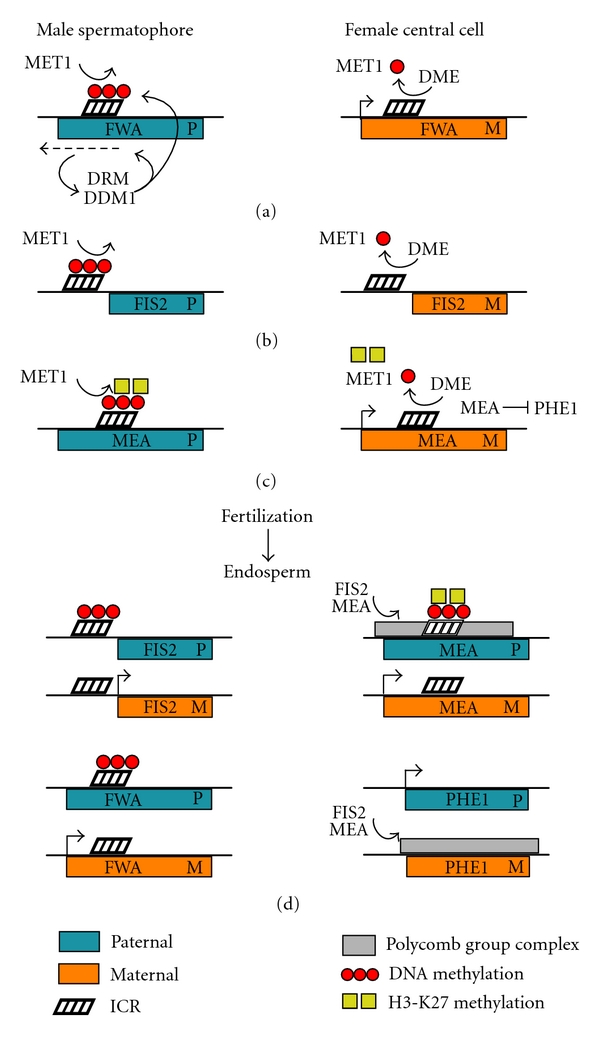Figure 2.

Imprinted regulation of the Arabidopsis genes FWA, FIS2, MEA, and PHE1. (a) Imprinted FWA is only expressed from the maternal allele. Prior to fertilization, MET1 methylates the paternal FWA promoter. In the male spermatophores, tandem repeats in the promoter produce siRNA (represented by the dashed arrow), which recruit DRM and DDM1 to the promoter region to maintain the methylated state. In the female central cell, DME demethylates the maternal FWA promoter maintaining maternal expression. (b) The antagonistic relationship between MET1 and DME is also involved in the imprinting of FIS2. MET1 methylates a region upstream of the paternal FIS2 allele that initiates silencing while DME demethylates the maternal allele. (c) The imprinted regulation of MEA also involves MET1 and DME; however, histone modification plays a key role in initiating parent-specific expression. Histone H3K27 methylation is present in the promoter region of the paternal MEA allele in addition to DNA methylation. DME protects the maternal promoter from both DNA and histone methylation. Transcribed maternal MEA, which encodes a member of the Polycomb group silencing complex, initiates the parent-specific silencing of maternal PHE1. (d) In the endosperm, the Polycomb group gene MEA contributes to its own imprinted expression in the endosperm, with maternally produced MEA involved in the silencing of the paternal MEA allele. FIS2, which is also part of a Polycomb silencing complex, contributes to silencing the paternal MEA allele. PHE1, which is regulated by Polycomb group silencing, is only expressed from the paternal allele. Maternally produced FIS2 and MEA combine to maintain the silencing of the maternal PHE1 allele.
